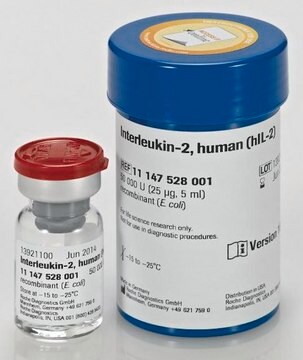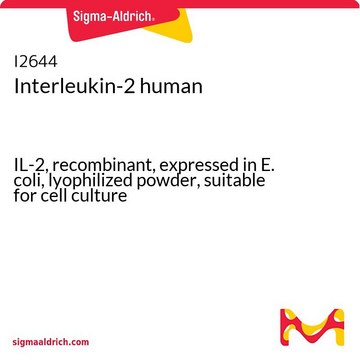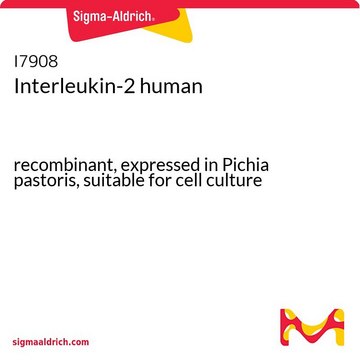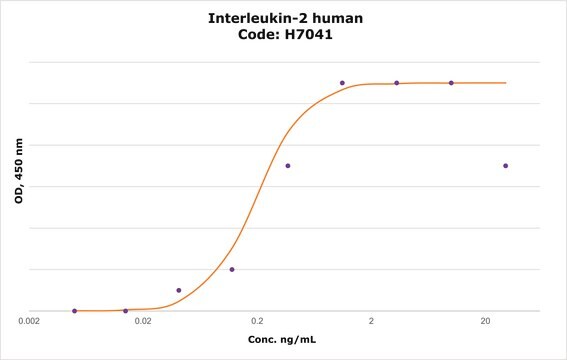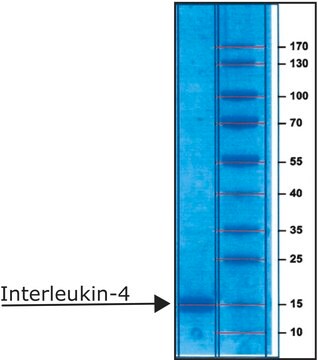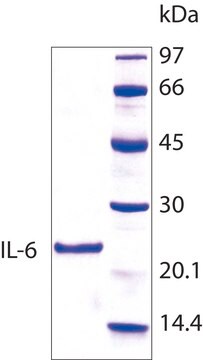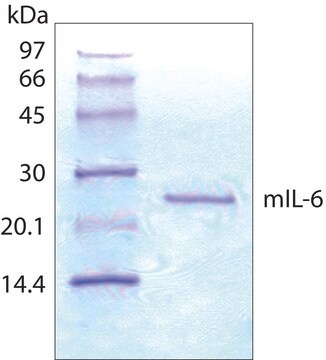I5273
Interleukin-5 human
recombinant, expressed in baculovirus infected Sf21 cells, ≥97% (SDS-PAGE), lyophilized powder, suitable for cell culture
Synonym(s):
IL-5
About This Item
Recommended Products
biological source
human
Quality Level
recombinant
expressed in baculovirus infected Sf21 cells
Assay
≥97% (SDS-PAGE)
form
lyophilized powder
potency
0.1-0.5 ng/mL EC50
mol wt
32-34 kDa
packaging
pkg of 5 μg
concentration
0.5-10 ng/mL
technique(s)
cell culture | mammalian: suitable
impurities
endotoxin, tested
UniProt accession no.
storage temp.
−20°C
Gene Information
human ... IL5(3567)
Biochem/physiol Actions
Physical form
Storage Class Code
11 - Combustible Solids
WGK
WGK 3
Flash Point(F)
Not applicable
Flash Point(C)
Not applicable
Personal Protective Equipment
Choose from one of the most recent versions:
Already Own This Product?
Find documentation for the products that you have recently purchased in the Document Library.
Articles
The Interleukins comprise a disparate group of cytokines and growth factors that are produced by and released from leukocytes. Interleukin-1β (1L-1β) is released primarily from stimulated macrophages and monocytes and plays a key role in inflammatory and immune responses and may induce anti-tumor immunity.
Our team of scientists has experience in all areas of research including Life Science, Material Science, Chemical Synthesis, Chromatography, Analytical and many others.
Contact Technical Service